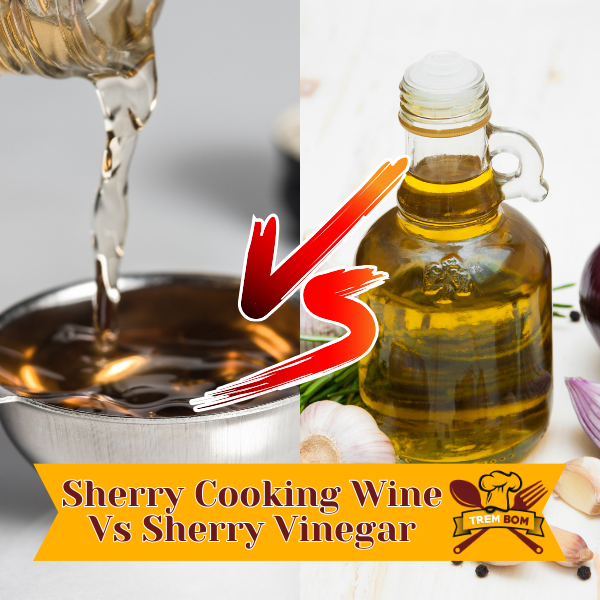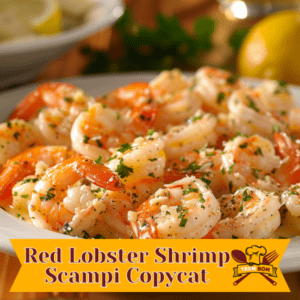
In this article, we will explore the differences between sherry cooking wine and sherry vinegar. Both ingredients offer unique flavors and can enhance various dishes, but understanding their distinctions will help you choose the most suitable option for your culinary creations.
Key Takeaways:
- Sherry cooking wine and sherry vinegar have different flavor profiles.
- Sherry cooking wine is sweeter and nuttier, while sherry vinegar is tangy and acidic.
- Sherry cooking wine is best for recipes that require sweetness and depth of flavor.
- Sherry vinegar is ideal for dishes that benefit from acidity.
- Both ingredients can be substituted with alternatives if needed.
Understanding Sherry Cooking Wine
Sherry cooking wine is a fortified wine that adds a unique flavor to a variety of dishes. It combines sweetness with a hint of nuttiness, creating a delightful taste that can elevate your culinary creations.
One of the main uses of sherry cooking wine is in sauces. Its distinct flavor profile enhances the taste of both meat and vegetable-based sauces, adding depth and richness. Additionally, sherry cooking wine is commonly used in marinades to infuse meats with a savory sweetness.
Another popular application of sherry cooking wine is in soups. Adding a splash of sherry cooking wine to your soups can bring a subtle complexity to the overall flavor. It pairs particularly well with creamy soups, such as mushroom or seafood chowder.
If you ever find yourself without sherry cooking wine, don’t worry. You can easily substitute it with a combination of white wine and a small amount of sugar. This alternative will provide a similar level of sweetness and depth to your dishes.
Sherry Cooking Wine Uses:
- In sauces for meats and vegetables
- In marinades to enhance the flavor of meats
- In soups to add a subtle complexity
Sherry Cooking Wine Substitutes:
- White wine + sugar
Now that you understand the uses and substitutes for sherry cooking wine, you can confidently incorporate it into your favorite recipes or explore new culinary adventures.
| Sherry Cooking Wine | Sauce Enhancer | Marinade Booster | Substitute |
|---|---|---|---|
| Uses | In sauces for meats and vegetables | In marinades to enhance the flavor of meats | White wine + sugar |
| In soups to add a subtle complexity |
Exploring Sherry Vinegar
Sherry vinegar is a versatile ingredient that adds a tangy and slightly acidic flavor to dishes. Made from sherry wine that has undergone fermentation and aging, sherry vinegar offers a distinct taste profile that can enhance the flavors of various recipes.
One of the primary uses of sherry vinegar is in salad dressings. Its acidity helps to balance the richness of dressings, creating a harmonious and flavorful blend. Additionally, sherry vinegar can be used in sauces and marinades to add a bright acidity that complements a range of ingredients.
If you don’t have sherry vinegar on hand, don’t worry! You can easily substitute it with red wine vinegar or apple cider vinegar. Although the exact flavor may differ slightly, these substitutes can still provide the desired tanginess to your dishes.
Sherry Vinegar Uses:
- Salad dressings
- Sauces
- Marinades
With its bold flavor and versatility, sherry vinegar can elevate your culinary creations to new heights. Whether you’re preparing a vibrant salad, a flavorful sauce, or a tangy marinade, sherry vinegar is a fantastic choice that will add a delightful acidity to your dishes.
The Difference in Flavor Profiles
When it comes to sherry cooking wine and sherry vinegar, the key distinction lies in their flavor profiles. Sherry cooking wine offers a delightful combination of sweetness and nuttiness, which can add depth and richness to your dishes. On the other hand, sherry vinegar boasts a tangy and acidic flavor that provides a pleasant zing to your culinary creations.
Understanding these flavor differences is crucial for achieving the desired taste in your recipes. Whether you are aiming for a sweeter and nuttier note or a tangy and acidic kick, choosing the right ingredient will make all the difference in your dish.
Sherry cooking wine has a sweeter and nuttier taste, while sherry vinegar has a tangy and acidic flavor.
To further illustrate the contrast, let’s take a closer look at the flavor profiles of each:
| Flavor Profile | Sherry Cooking Wine | Sherry Vinegar |
|---|---|---|
| Taste | Sweet and nutty | Tangy and acidic |
| Aroma | Rich and aromatic | Pungent and vibrant |
| Intensity | Moderate | Strong |
| Usage | Enhances depth and sweetness in dishes | Brings acidity and brightness to recipes |
As you can see, these flavor differences will greatly influence the taste and overall profile of your dishes. Whether you prefer a touch of sweetness or a burst of tanginess, incorporating the right ingredient will elevate your culinary creations to new heights.
Now that you understand the flavor differences between sherry cooking wine and sherry vinegar, you are equipped with the knowledge to make informed decisions in your cooking endeavors. Experiment, explore, and savor the unique flavors these ingredients have to offer!
Best Uses in Cooking
When it comes to cooking, sherry cooking wine and sherry vinegar are both versatile ingredients that can elevate the flavors of your dishes. Understanding their distinct characteristics will guide you in choosing the best option for your recipes.
Sherry Cooking Wine:
Sherry cooking wine brings a touch of sweetness and depth of flavor to a variety of dishes. Its rich and nutty taste pairs beautifully with poultry, seafood, mushrooms, and cream-based sauces. Here are some popular uses for sherry cooking wine:
- Chicken Marsala: The sweet and nutty notes of sherry cooking wine perfectly complement the tender chicken and rich mushroom sauce.
- Shrimp Scampi: Add a splash of sherry cooking wine to the garlic butter sauce for a delightful burst of flavor.
- Mushroom Risotto: The earthy flavors of mushrooms and the sweetness of sherry cooking wine create a heavenly combination in this classic dish.
- Creamy Cauliflower Soup: A drizzle of sherry cooking wine adds complexity and warmth to this comforting soup.
Sherry Vinegar:
Sherry vinegar is known for its tangy and slightly acidic flavor, making it a fantastic ingredient for recipes that benefit from acidity. Its bright and lively taste adds depth to vinaigrettes, braised dishes, and reductions. Here are some recommended uses for sherry vinegar:
- roasted Beet Salad: The acidity of sherry vinegar complements the earthiness of roasted beets, creating a harmonious balance of flavors.
- Braised Short Ribs: Sherry vinegar adds a tangy punch to the rich and tender meat, enhancing its overall taste.
- Reduction Sauce: Use sherry vinegar to reduce and concentrate the flavors of sauces, creating a delightful finishing touch to your dishes.
- Marinated Vegetables: The acidity of sherry vinegar helps brighten and enhance the flavors of marinated vegetables, making them even more delicious.
By experimenting with both sherry cooking wine and sherry vinegar, you can unlock a world of exciting culinary creations. Whether you want to add sweetness and depth of flavor or bright acidity to your dishes, these ingredients will elevate your cooking to new heights.
Tips for Cooking with Sherry Cooking Wine and Sherry Vinegar
When it comes to using sherry cooking wine and sherry vinegar in your culinary creations, a few expert cooking tips can help you achieve the best results. Here are some pointers to keep in mind:
Sherry Cooking Wine:
- Add sherry cooking wine towards the end of the cooking process to preserve its delicate flavors. This will ensure that the unique nutty and sweet notes shine through in your dish.
- Use sherry cooking wine in moderation. Its robust flavor can easily overpower other ingredients, so be sure to add it gradually and taste as you go.
- Consider using sherry cooking wine as a delicious ingredient in sauces, marinades, and soups for an extra layer of depth and complexity.
Sherry Vinegar:
- Start with a small amount of sherry vinegar and adjust according to your taste preferences. Its tangy and slightly acidic flavor can vary from brand to brand, so it’s best to start conservatively.
- Use sherry vinegar to brighten up your dishes with a touch of acidity. It pairs exceptionally well with salads, dressings, braised dishes, and reductions.
- Remember to balance the amount of sherry vinegar with other ingredients in your recipe. Too much acidity can overpower the other flavors, so use it judiciously.
By following these cooking tips, you can make the most of sherry cooking wine and sherry vinegar, elevating the taste and complexity of your dishes. Enjoy experimenting with these versatile ingredients in your kitchen!
Substituting Sherry Cooking Wine and Sherry Vinegar
If you find yourself without sherry cooking wine or sherry vinegar, don’t worry! There are suitable alternatives that can still deliver delicious results in your recipes. Here are some substitutions you can use:
Substituting Sherry Cooking Wine:
- White Wine and Sugar: If you don’t have sherry cooking wine, a combination of white wine and a small amount of sugar can be used as a substitute. The sweetness of the sugar helps mimic the unique flavor profile of sherry cooking wine.
Substituting Sherry Vinegar:
- Red Wine Vinegar: When sherry vinegar is unavailable, red wine vinegar can be used as a substitute. It offers a similar level of acidity and can add a tangy flavor to your dishes.
- Apple Cider Vinegar: Another alternative to sherry vinegar is apple cider vinegar. It has a slightly sweeter taste compared to sherry vinegar but still provides a pleasant tanginess to your recipes.
While these substitutions may not perfectly replicate the taste of sherry cooking wine or sherry vinegar, they can still bring depth and flavor to your dishes. Feel free to experiment with these alternatives and adjust the quantities according to your preference.
Recommended Recipes
Get ready to tantalize your taste buds with these delectable recipes that showcase the best uses of sherry cooking wine and sherry vinegar. From savory entrées to mouthwatering desserts, these dishes will elevate your culinary skills and impress your family and friends.
1. Sherry-Glazed Chicken with Roasted Vegetables
Indulge in a succulent combination of tender chicken marinated in sherry cooking wine and glazed to perfection. Serve alongside roasted vegetables for a hearty and flavorful meal.
2. Shrimp Scampi with Sherry Butter Sauce
Experience the delicate flavors of shrimp sautéed in a rich and tangy sherry butter sauce. This elegant dish is quick to prepare and is sure to be a crowd-pleaser.
3. Mushroom Risotto with Sherry Vinegar
Take your taste buds on a journey with this creamy mushroom risotto infused with the subtle tang of sherry vinegar. It’s a comforting and satisfying dish that is perfect for a cozy night in.
4. Grilled Peaches with Sherry Reduction
Indulge in the sweetness of grilled peaches drizzled with a luscious sherry reduction. This refreshing dessert is the perfect way to end a summer meal.
5. Spinach Salad with Sherry Vinaigrette
Elevate your salad game with this vibrant spinach salad dressed in a tangy sherry vinaigrette. The combination of flavors will leave you craving for more.
Try these enticing recipes and discover the endless possibilities that sherry cooking wine and sherry vinegar bring to your kitchen. With their unique flavors, they are sure to elevate any dish and impress your guests.
Conclusion
After exploring the distinct flavors and best uses of sherry cooking wine and sherry vinegar, you can now confidently choose the right option for your recipes. Sherry cooking wine offers a sweeter and nuttier taste, making it perfect for dishes that require depth of flavor. It pairs well with poultry, seafood, mushrooms, and cream-based sauces, adding a touch of sweetness to elevate your culinary creations.
On the other hand, sherry vinegar provides a tangy and acidic flavor, adding a pleasant acidity to your dishes. It is ideal for salad dressings, sauces, and marinades, giving a zesty kick to your favorite recipes. Experience the versatility of sherry vinegar in vinaigrettes, braised dishes, and reductions, and let its tangy notes take your taste buds on a delightful journey.
Remember to follow our cooking tips when using sherry cooking wine and sherry vinegar. Consider adding sherry cooking wine towards the end of the cooking process to preserve its delicate flavors, and start with a small amount of sherry vinegar and adjust according to your taste preferences. Tasting as you go is always a great way to ensure the perfect balance of flavors in your dishes.
So, go ahead and experiment with these ingredients in your kitchen. Discover a new world of flavors, unleash your culinary creativity, and impress your family and friends with delicious dishes infused with the unique tastes of sherry cooking wine and sherry vinegar. Happy cooking!
FAQ
What is the difference between sherry cooking wine and sherry vinegar?
Sherry cooking wine is a fortified wine with a sweet and nutty flavor used for cooking, while sherry vinegar is made from fermented and aged sherry wine, offering a tangy and acidic taste.
What are the uses of sherry cooking wine?
Sherry cooking wine can be used in sauces, marinades, soups, and dishes that require a touch of sweetness and depth of flavor. It pairs well with poultry, seafood, mushrooms, and cream-based sauces.
How can I substitute sherry cooking wine if I don’t have it?
If you don’t have sherry cooking wine, you can substitute it with a combination of white wine and a small amount of sugar to mimic its flavor.
What are the uses of sherry vinegar?
Sherry vinegar is commonly used in salad dressings, sauces, and marinades, providing a pleasant acidity to dishes. It can also be used in braised dishes and reductions.
Can I substitute sherry vinegar with other types of vinegar?
Yes, if you don’t have sherry vinegar, you can substitute it with red wine vinegar or apple cider vinegar for similar acidity levels in your dishes.
What is the difference in flavor between sherry cooking wine and sherry vinegar?
Sherry cooking wine has a sweeter and nuttier taste, while sherry vinegar has a tangy and acidic flavor. Understanding these differences is crucial for achieving the desired taste in your recipes.
Do you have any tips for cooking with sherry cooking wine and sherry vinegar?
When using sherry cooking wine, consider adding it towards the end of the cooking process to preserve its delicate flavors. For sherry vinegar, start with a small amount and adjust according to your taste preferences. It is always recommended to taste as you go when incorporating these ingredients into your dishes.
Can I substitute sherry cooking wine and sherry vinegar with other ingredients?
If you don’t have sherry cooking wine, you can substitute it with a combination of white wine and sugar. Similarly, if you don’t have sherry vinegar, red wine vinegar or apple cider vinegar can be used as alternatives. While the exact taste may differ slightly, these substitutions can still provide delicious results.
Do you have any recommended recipes using sherry cooking wine and sherry vinegar?
Yes, in the next section, we will provide you with some delectable recipes that showcase the best uses of sherry cooking wine and sherry vinegar. Stay tuned for mouthwatering dishes that will elevate your culinary skills.






